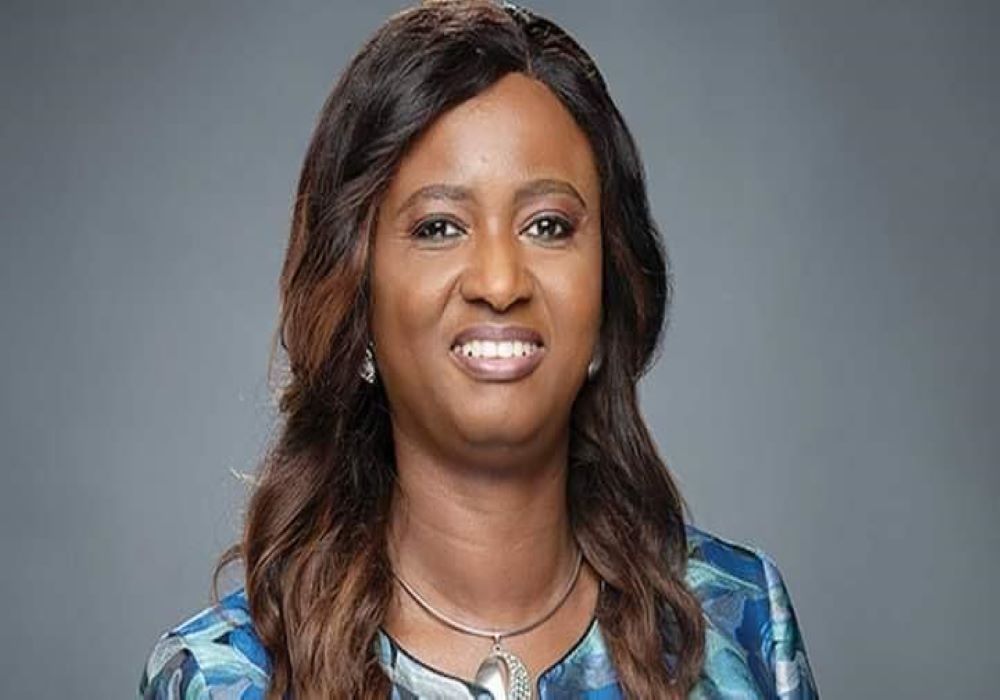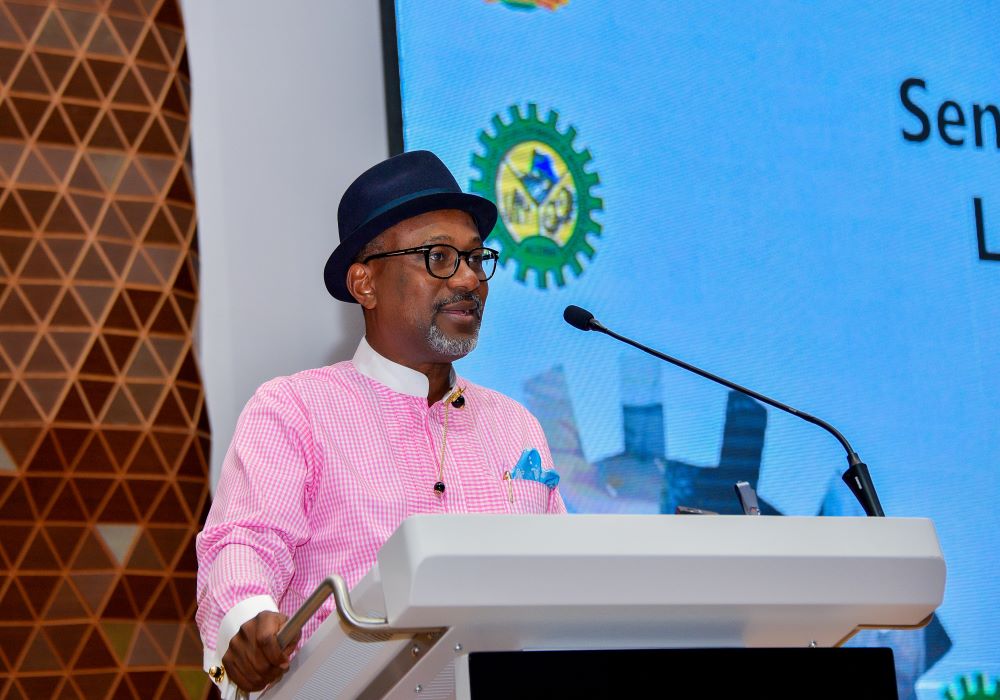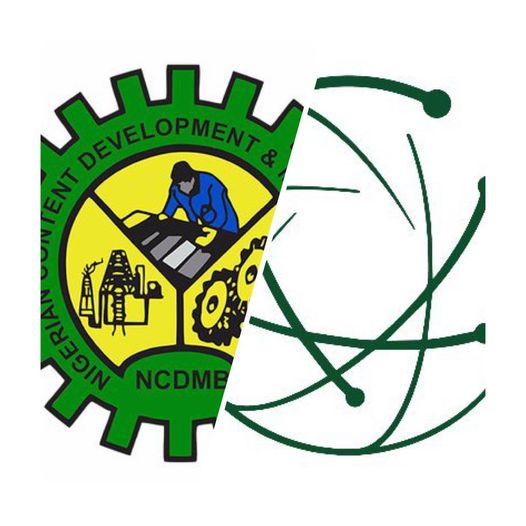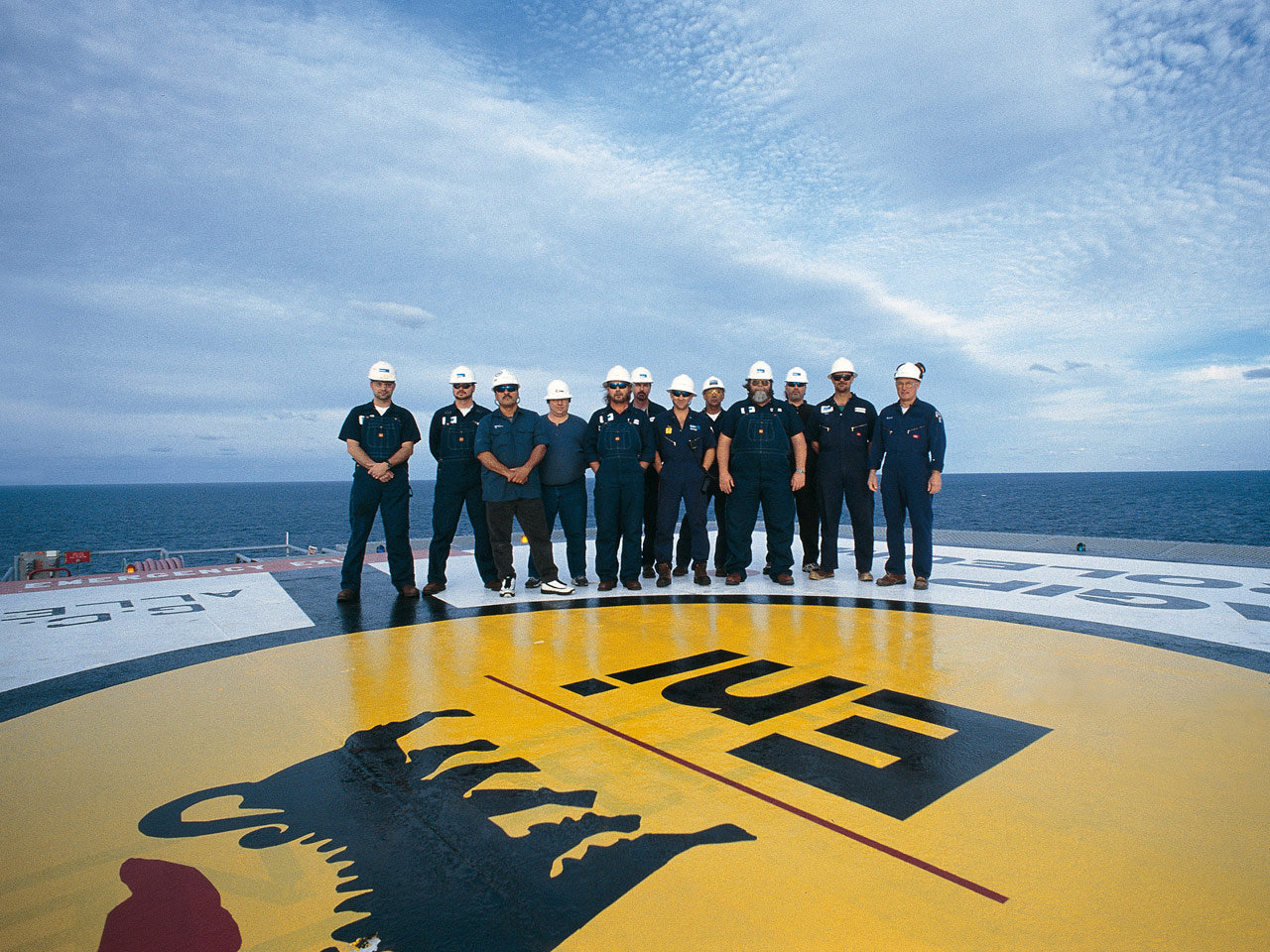Energy
Offshore West Africa: A major instrument of growth
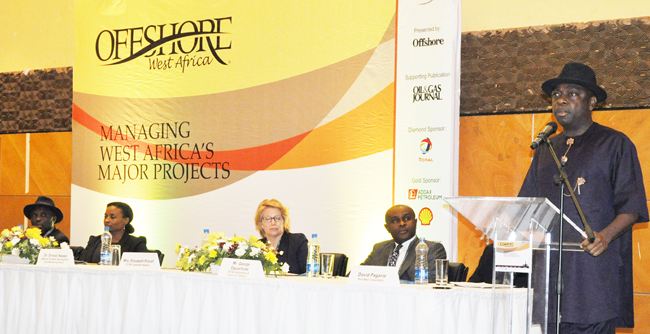
Joseph BAMIDELE
LAGOS-THE Offshore West Africa Conference & Exhibition, owned and produced by the PennWell Corporation, is delighted to introduce delegates, exhibitors and visitors to the upcoming 20th anniversary edition in Nigeria.
The first of its kind in West Africa, the event premiered in 1996 in Nigeria to an international audience of delegates, exhibitors and partners. Borne out of a need to provide a networking and technical knowledge sharing platform in the West African Oil & Gas sector, this annual event has grown from humble beginnings into the Oil & Gas phenomenal event it is today.
The Offshore West Africa Conference has over its rich 20-year history been instrumental to the growth of the Oil & Gas Sector globally by delivering a first class networking platform in West Africa and continues to do so. To mention a few, The paradigm shift in the Nigerian Oil & Gas Sector from land and swamp operations to Offshore Oil & Gas Exploration and Production, with the major International Oil and Gas companies delving into the use of FPSOs (Floating Production, Storage and Offloading Vessels) as the ‘new way’ in offshore E&P (Exploration & Production) operations in the last 15 years.
The Offshore West Africa forum has also played a significant role in showcasing new and relevant technologies that have been instrumental to the discovery and development of new and major offshore Oil & Gas Fields in West Africa as was the case with the Ghanaian Oil & Gas industry when hydrocarbon deposits were discovered in commercial quantities in the last 10 years.
“This in turn has attracted more international Oil & Gas companies to the West African Offshore E&P market as well as generate new frontiers in far off Asia for the manufacture of FPSOs, allied technology, products as well as requisite global training of manpower to operate new systems and operate in fresh markets.
Indeed, the Offshore West Africa Conference is truly indigenous to the countries where the forum has held over the years – as our continuous partnership with the Nigerian Content Development and Monitoring Board (NCDMB) and various similar institutions in the West African Oil and gas sector has proven.
International Trade Missions with global reaches such as the United Kingdom Trade & Investment Council (UKTI), the Scottish Development International (SDI) and the International Trade Council (ITC) as well as Regional Industry government heavyweights such as the Nigerian National Petroleum Corporation (NNPC), the Department of Petroleum Resources (DPR), the Ghana National Petroleum Corporation (GNPC), International Oil Companies – IOCs (such as Royal Dutch Shell, Total, Addax, Nigerian Agip Oil Company and Saipem), EPIC companies, major financial institutions operating in West Africa have also continuously partnered with the Offshore West Africa Conference over the years. This list is still growing.”
The report reads further that Foremost Institutions such as the African Energy Association, the Energy Institute Nigeria and Lonadek have also continued to partner with the Offshore West Africa Conference as Strategic Partners for the 20th annual Offshore West Africa in 2016. As featured during the Offshore West Africa 2015 conference, the Year 2016 conference will also feature a Continuous Development Programme for fresh engineers and a Youth Empowerment Programme for a stipulated number of university students from Ghana and Nigeria.
“These programmes will be run in conjunction with Lonadek and the Energy Institute’s Young Professionals Network and they form a part of PennWell’s overall corporate social responsibility initiatives. The programmes involve Career Counselling, Industry Related Awareness and an Empowerment Workshop.
As plans are being finalised towards the 20th anniversary edition of the Offshore West Africa Conference, the event promises to be better than ever.
Taking place on 26-28 January 2016 at the Eko Hotel & Suites, Lagos, Nigeria, Offshore West Africa will build on the success of the 2015 event, which also took place in Lagos and attracted a record breaking international audience of almost 2,400 leading oil and gas industry professionals from more than 30 countries worldwide.
The event will continue to feature a technical and strategic conference program developed by an Advisory Board comprised of leading industry experts, as well as an exhibition showcasing products, technologies and services from global and regional oil & gas companies, held concurrently, bringing together exhibitors and attendees from around the world for three days of education, networking and new business development.
Offshore West Africa is a truly West African event and addresses key technology and development issues for the West African offshore Oil and Gas market, through a comprehensive educational program and three-day exhibition and conference, with the 2016 event focusing on Positioning for a Sustainable Future as the core theme.
Offshore West Africa welcomes you to join in the celebrations as the event hosts its 20th anniversary celebrations, and will provide further news shortly on the announcement of new strategic partners, supporters, sponsors, exhibitors and speakers. “the report reads in part.
Energy
Asharami Synergy Unveils Fuelling Solutions In Omagwa
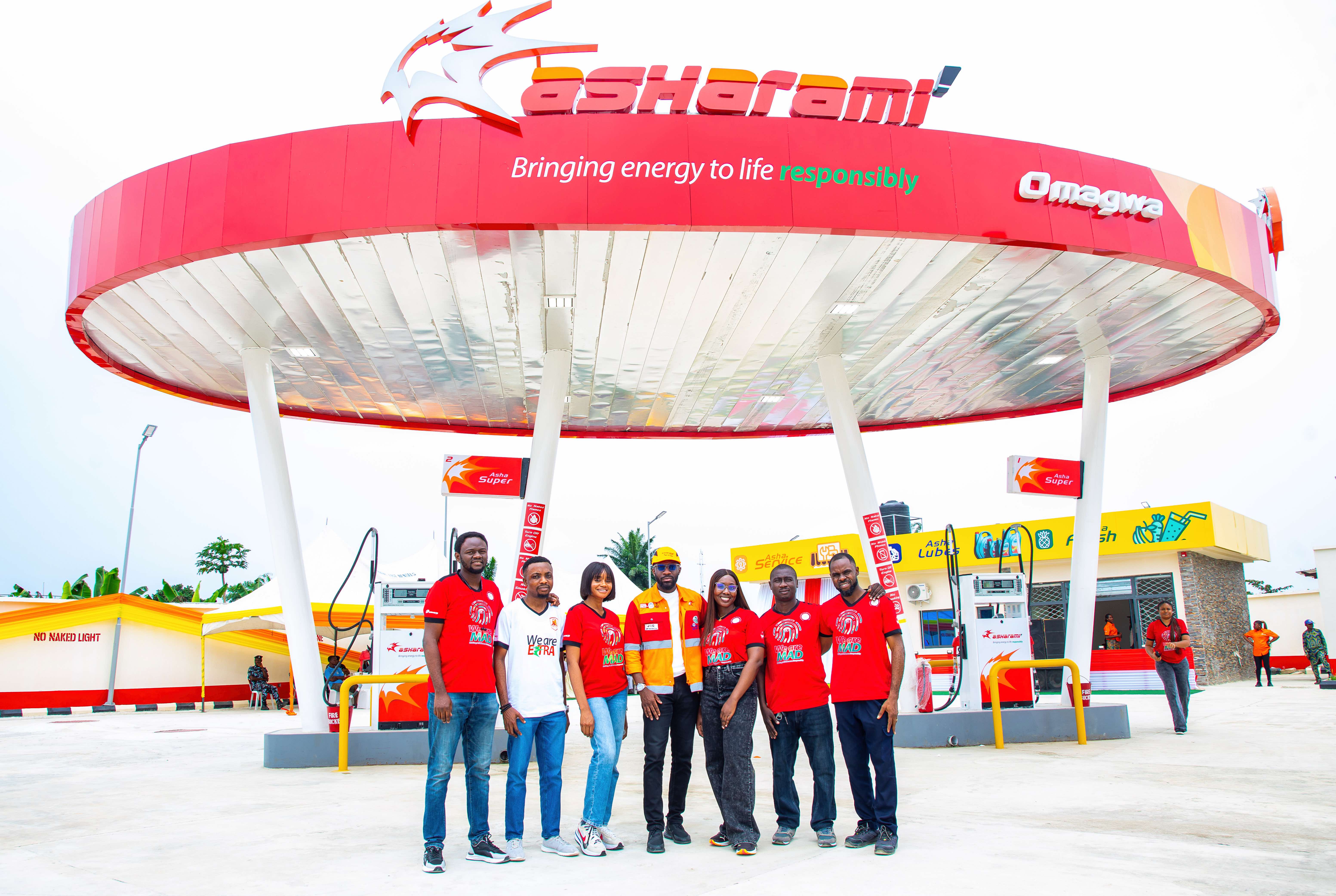
In line with its commitment to driving access to quality petroleum products, Asharami Synergy Limited, a leading Sahara Group downstream company, has said the public can now access exceptional fuelling solutions at its newly commissioned retail station in Omagwa, Rivers State.
Situated strategically along the Airport Road in Omagwa, the station, which features a storage capacity of 45,000 litres each for Automotive Gas Oil (AGO, also known as diesel) and Premium Motor Spirit (PMS, also known as petrol) is equipped with two pumps and four discharge nozzles for PMS and AGO.
The facility also has ample space for sundry services in a bid to ensure consumers get more “miles and smiles” as well as the energy to “go further” with Asharami’s world-class products.
“The Asharami Omagwa Retail Station is fully operational, offering a range of premium products and services. It’s a one-stop shop that also gives our esteemed customers eat-in and take-out restaurant services, shopping, as well as the Asha lubricants and Asha Service experience which will ensure premium care for all classes of automobiles and engines,” said Oladimeji Williams, Head, Government Relations and Business Development at Asharami Synergy.
ALSO READ: NNPCL Launches Utapate Crude Oil Blend, Eyes Production Expansion In 2025
At the Commissioning, Willaims said the new station represents an important step in Asharami Synergy’s expansion plan aimed at reaching and serving more communities responsibly. “This station is strategically positioned close to the airport, serving as the gateway for powering socio-economic development in the community and those close to it, while enabling Asharami Synergy integrate all aspects of its downstream business towards ensuring efficiency and value for our customers,” he stated.
Williams commended the Federal Airport Authority of Nigeria (FAAN) and the Omagwa community leaders for their support and collaboration throughout the project’s duration, describing it as a “seamless and productive process that highlights Asharami’s corporate stewardship and social impact” in the community.
Similarly, Ifesinachi Ezike, Regional General Manager (South South), FAAN, emphasized the broader significance of the new station, stating, “This occasion marks a significant milestone not just for Asharami Synergy but for the airport and the entire community. It marks not just an opening of a new facility but the beginning of a renewed commitment to enhancing the travel experience of all our passengers and stakeholders”.
In a move that underscores its commitment to sustainability and community development, Asharami Synergy also commissioned a solar-powered borehole during the launch. The borehole is set to improve access to clean and reliable water for residents, marking a tangible contribution to the local community.
“At Sahara, we are always making a difference—not just through our business operations; we are unwavering in our commitment to driving sustainable development and building partnerships that enhance the well-being of our host communities,” Williams added.
Energy
Awards Galore For Shell, Staff At NAPE 2024 Conference

The Shell companies in Nigeria and staff won awards in recognition of their robust participation at the 42nd Annual International Conference and Exhibition of the National Association of Petroleum Explorationists (NAPE), held in Lagos.
At the closing dinner of the event, the Managing Director of Shell Nigeria Exploration and Production Company (SNEPCo), Ronald Adams pledged sustained efforts by the company to address “the Nigerian energy trilemma by powering progress towards energy security in a sustainable manner”.
On the awards, the Shell was declared Best Overall Exhibitor and Best Exhibiting Energy company (International) just as Geophysicist Somime Oguntola took home the Award of Excellence for Oral Paper (second place).
The icing on the cake was a Shell staff, Johnbosco Uche, being installed as the new President of the NAPE.
It was gathered that the Shell companies in Nigeria have supported NAPE since its founding in 1975, using the skills and expertise of the large pool of energy professionals in its employment to improve its activities especially educational and mentoring programmes.
In addition to being a major sponsor of the 2024 conference, Shell mounted a high-profile exhibition, featuring among other things, career counselling, engagements on Nigerian Content and Contractor development and panel sessions on Women in Industry and Sustainability Energy Challenge.
A highlight was the Shell medical stand which attended to more than more than 500 conference participants and members of the public over the four days of the annual event. The doctors and nurses offered a wide range of services including laboratory tests, deworming, medical consultation as well as ophthalmology checks and distribution of nearly 300 eyeglasses.
Adams referred to the operations of SNEPCo as an example of Shell’s contribution to energy security in Nigeria. “As a result of sustained production from Bonga, we have provided funds to finance development, created a new generation of Nigerian Deepwater professionals, empowered indigenous contractors and service providers, and implemented social investments that have touched lives in the six geo-political zones of the country,” he said.
Adams added, “SNEPCo and indeed Shell are in Nigeria for the long haul. Our commitment is reflected in both our current and growth plans, all of which are grounded in principles of safety, affordability, and competitive performance.”
Energy
Accugas Denies Culpability In Akwa Ibom’s Power Outage

Owing to the persistent power outage, which has crippled economic and social life in most parts of Akwa Ibom State and environs, Accugas Limited has washed its hands off the ugly situation.
This was contained in a statement under the signature of its Communications Manager, Okwudili Onyia, in which the company traced the anomaly to a “fault in the 132-KV Aba-Itu transmission line”.
To ameliorate the situation, the company maintained that “It is imperative that the restoration of the Aba-Itu line is completed as soon as possible.”
In addition, the company pledged thus, “Accugas will continue to partner with, and support, the government of Akwa Ibom State towards achieving the government’s agenda for economic development and prosperity of the state.”
ALSO READ: NNPC Ltd To Supply 100mmscf/d Gas To Dangote Refinery
The statement reads, “Accugas Limited, a subsidiary of Savannah Energy, wishes to strongly deny the misinformation concerning its alleged involvement in the current power outage in Akwa Ibom State.
“The power cut in Akwa Ibom State is entirely due to the reported fault in the 132-KV Aba-Itu transmission line, which, unfortunately, is preventing power being transmitted from the National Grid into the State. It is imperative that the restoration of the Aba-Itu line is completed as soon as possible.
“Ibom Power Company (“IPC”) is one of 23 thermal power generation companies which channel power to the National Grid, which in turn disseminates all accumulated power to each State of the Federation through the electricity distribution companies (“Discos”). Indeed, Accugas supplies gas to enable c. 20% of Nigeria’s thermal generation capacity and, as such, is a critical enabler of the Nigerian economy.
“Within Akwa Ibom State, Accugas has been the sole supplier of gas to IPC since 2014 and, together with other Savannah subsidiaries, has invested over US$1.5 billion in gas development within the state. Furthermore, Savannah has recently invested c. US$45 million in a gas compression project at Accugas’ Uquo central processing facility at Esit Eket. Accugas’ commitments also extend to several social investment projects in the state. All the foregoing investments and projects, including other imminent investments Accugas intends to make in the State, demonstrate the Company’s long-term commitment to Akwa Ibom State and Nigeria.
“Accugas will continue to partner with, and support, the government of Akwa Ibom State towards achieving the government’s agenda for economic development and prosperity of the state.”


